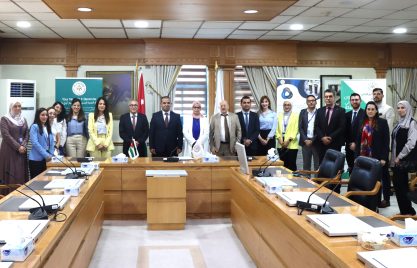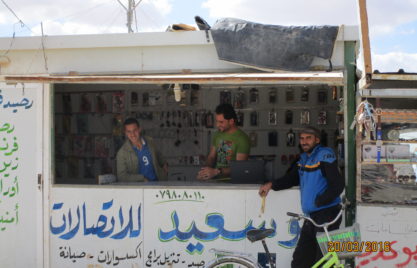The high youth unemployment despite an ever increasing number of young graduates is a priority on the political agenda in Jordan. In an effort to promote entrepreneurship, the Government re-engineers its labor policies to integrate managerial skills development, financial education and access to finance.
Entrepreneurship is a ‘hot topic’ on the economic agenda and for labor market policies in Jordan, receiving not only governmental priority but arising out of longstanding concerns about the high rates of unemployment. As education becomes more readily available to this generation, many students are graduating from university. However, the formal job market slowdown and cannot generate enough jobs for young graduates. This results in the number of graduates who don’t find formal employment exceeding 254,000 (Department of Statistics 2016).
In light of the hard economic conditions and high unemployment rates which exceeded 18.5% in Q3 of 2017 (Department of Statistics 2016), the government has given importance to the Micro Small and Medium Enterprises (MSMEs) and specifically to entrepreneurship. His Majesty has also paid special attention to making job opportunities available for Jordanians and focusing on training and rehabilitation projects to combat unemployment within larger efforts to propel economic and social development forward. The National Vocational Training Council has been the culmination of His Majesty’s belief in the importance of this sector. Accordingly, the government is targeting the graduates of Vocational Training Corporation (VTC) and technical training programs to promote entrepreneurship and self-employment.
Recently, an agreement has been established between public financial institutions and non-financial institutions to foster entrepreneurship and self-employment. The objective is to link the vocational and technical graduates with these institutions in order to enable them to establish, run and sustain their own enterprises. Different roles and responsibilities have been assigned to the partners with the aim of targeting the unemployed graduates in the governorates.
It is important to ensure that the target groups have the skills, knowledge and understanding to manage their borrowing and investment strategies. The public financial institutions through its partnership with non-financial institutions can play a key role in implementing financial education, helping to build the capacity among low-income clients to ensure that they benefit from access to microfinance through the effective use of these services. The combination of financial literacy interventions with adjustments in loan product development have better chances to enhance welfare of the poor through improved financial decisions.
Therefore, a cornerstone of implementing the above agreement would be the design and delivery of comprehensive and innovative financial and non-financial services to the vocational and technical graduates. Every financial service (loan products) and non-financial service (consultancy and training) should be designed in a way that achieve the greater goal of supporting them in strategically starting and growing their businesses.
Finally, a major challenge can be found regarding preliminary education as well as lifelong learning. Entrepreneurship competencies should be integrated into general and vocational education as a stimulus for entrepreneurial behavior in the labor market. In addition, it is necessary to cultivate a culture in which entrepreneurship is seen as a natural career possibility. This should be connected to new developments in vocational education. To conclude, entrepreneurship should be increasingly promoted as a real and attractive alternative to formal employment. Two of the more important policies to improve those in the self-employment sector are the transfer of skills for entrepreneurship and access to financial products. It is highly relevant to have more integrated support programs, combining business training, technical assistance, access to credit and financial education to sustainably promote the growth of micro and small entrepreneurs in developing countries.
Bashar Al-Zu’bi, PhD, GIZ MFMR Project and EPP Project



